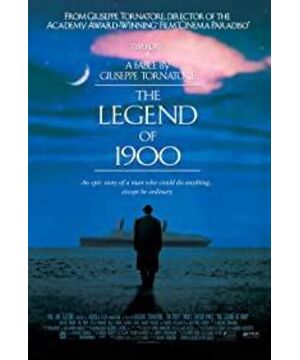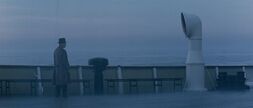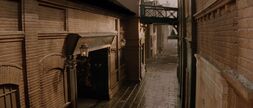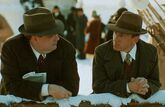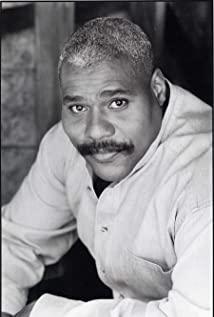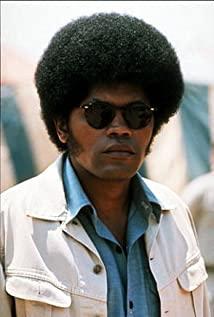-A brief analysis of the music of "The Pianist at Sea" is expressed in ships drifting at sea. It will not become unique due to the people passing by, but music can make it epic and great. The Pianist at Sea, directed by Giuseppe Tonadore, tells the story of an abandoned baby who was adopted by the coal miner Danny and named "1900", grows up on a boat and learns to play the piano, and later becomes a piano Master's story. "1900" was afraid of land and cities, and dared not leave the ship all his life, and finally chose to end his life with the ship. The film takes music as the theme and expresses life with music. The joining of master composer Morricone makes the whole film permeated with elegant and fragrant artistic atmosphere. The music creates the atmosphere and tone of the film, and also fully expresses and interprets the narrative content of the film together with the pictures. When the trumpeter Max just got off the boat and encountered the discomfort of the wind and waves, the music and the picture cooperated perfectly. The camera shot switches between Max and the undulating waves of the night, and the encounter with Max, who is clumsy and has a fat body, is hilarious. Max struggled hard like a drunk in the corridor alone. He stumbled, bewildered, and almost threw his head into a jar and vomited. At this time, the film is composed of woodwind instruments such as bassoon and piccolo, with the shaking objects and the staggering Max. The rhythm remains brisk and unified, creating a strong humorous atmosphere. The film also uses the method of sound and picture alignment to enhance the artistic effect of the film and enrich the content of the picture. In this way, the music creates a strong psychological contrast between the virtual space in the picture and the audience's heart, thus enriching the film's expressive level and revealing its profound connotation. At the end of the film, Max took the record of "1900" that he had recorded in his life, and came to the Virginia ship that was about to be bombed to find "1900". The cluttered, rusted railings of the ground appear on the screen. The luxury oil tankers of yesteryear are a dilapidated image. "1900" also explained to Max the reason why he refused to leave the ship. He doesn't want to get lost in a world with no end in sight. At this moment, "1900" seemed extraordinarily calm compared to Max's sobbing. The music sounded slowly, and the orchestral music was sad and heavy. With the camera looking up, the old people embraced and said goodbye. Against this background, "1900" began to talk witty about his upcoming dialogue with St. Peter at the gate of heaven. Facing death "1900" is so calm and relaxed, it is emotional and thought-provoking. There is a sharp contrast between the music and the picture, It makes the audience get a sense of detachment and can further appreciate the deep connotation of the film. On the whole, the soundtrack of the film plays a good role in explaining the narrative background and tone of the whole film. "The Pianist at Sea" tells the story by means of flashbacks and interludes. When the camera is switched from Max sitting on the steps at night, wiping the trumpet, missing his friends, and switching to the Virginia at sea many years ago, the orchestra slowly sounded, and the sound was in the sound of the sea. It looks a little fuzzy and mottled against the background, giving people a sense of vicissitudes and nostalgia. The sound of music guides the audience into the yellowish years. Afterwards, jazz-style piano music is integrated into the film, which brings a unique artistic atmosphere to the film. Throughout the film, Morricone uses a large number of different genres and styles of music, especially early American jazz, ragtime, and classical music, and blends these musical elements together to create a A unique and refreshing new sense of hearing music. "Sea Pianist" subtly uses the expressive power and sense of shape of music, making it a natural combination with the picture, which not only satisfactorily explains the content of the picture, but also endows the picture with deep connotation and meaning. The famous Russian composer Shostakovich once said: "When the language of words can no longer express anything, the charm of music has just begun." Use the purity of music to satirize the material world full of fame, fortune and desire. , also praised 1900's indifference to fame and fortune, and the natural and pure spiritual world, creating the overall grandeur and grandeur of the film. This pure soulful style runs through, revealing the film's eventual epic tragic ending. Created a unique and refreshing new sense of music. "Sea Pianist" subtly uses the expressive power and sense of shape of music, making it a natural combination with the picture, which not only satisfactorily explains the content of the picture, but also endows the picture with deep connotation and meaning. The famous Russian composer Shostakovich once said: "When the language of words can no longer express anything, the charm of music has just begun." Use the purity of music to satirize the material world full of fame, fortune and desire. , also praised 1900's indifference to fame and fortune, and the natural and pure spiritual world, creating the overall grandeur and grandeur of the film. This pure soulful style runs through, revealing the film's eventual epic tragic ending. Created a unique and refreshing new sense of music. "Sea Pianist" subtly uses the expressive power and sense of shape of music, making it a natural combination with the picture, which not only satisfactorily explains the content of the picture, but also endows the picture with deep connotation and meaning. The famous Russian composer Shostakovich once said: "When the language of words can no longer express anything, the charm of music has just begun." Use the purity of music to satirize the material world full of fame, fortune and desire. , also praised 1900's indifference to fame and fortune, and the natural and pure spiritual world, creating the overall grandeur and grandeur of the film. This pure soulful style runs through, revealing the film's eventual epic tragic ending.
View more about The Legend of 1900 reviews


